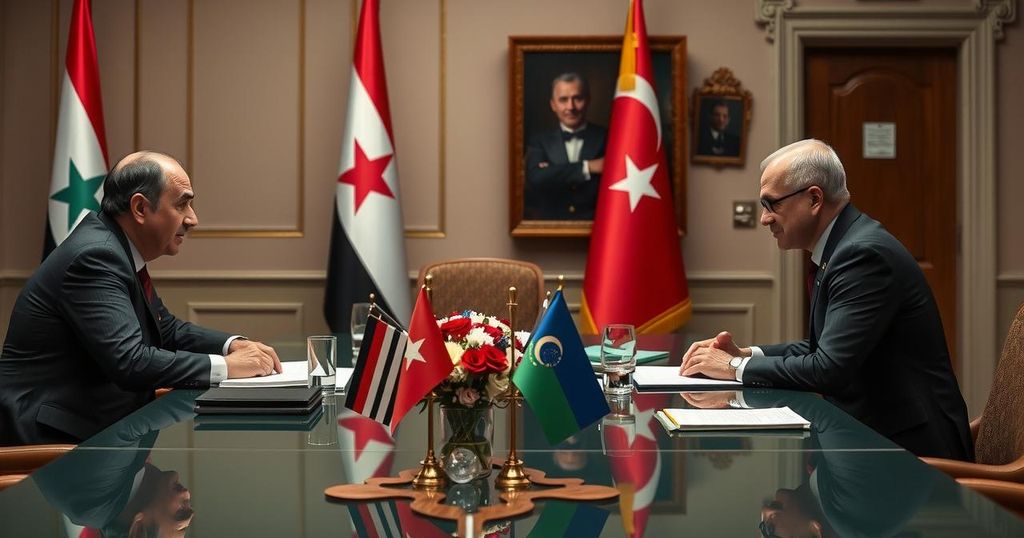Global Engagement Intensifies with Syria’s New Interim Leaders Post-Assad

Following the ousting of President Bashar al-Assad on December 8, 2024, governments worldwide are revamping their outreach to Syria’s new interim rulers. Amid citizens’ celebrations, realities of HTS’s leadership and the need for inclusive governance pose challenges. International support is increasing, exemplified by diplomatic visits and aid packages, but concerns over rights and infrastructure recovery persist.
Governments worldwide are increasing their diplomatic outreach to Syria’s new interim leaders following the recent ousting of President Bashar al-Assad by Islamist-led rebels on December 8, 2024. The rapid takeover resulted in widespread celebrations in Syria, with many citizens expressing newfound hope and optimism. Yasmin Shehab, a university student, remarked, “We feel liberated, and the chains have been broken. Fear has been shattered.”
The ousting of Assad has complicated international relations, particularly due to the involvement of Hayat Tahrir Al Sham (HTS), a group with roots in Al-Qaeda, which remains designated as a terrorist organization by several Western nations. In response, diplomats, including the UN envoy Geir Pedersen, have emphasized the importance of forming an inclusive and accountable government while promoting justice and rebuilding the war-torn nation.
International engagement has begun anew, with a Qatari delegation visiting Syria to support local governance and humanitarian efforts. Turkey has also re-established its diplomatic presence in Damascus, while the United Kingdom and the United States confirmed their communication with HTS, despite the organization’s controversial status. British Foreign Minister David Lammy acknowledged the necessity of diplomatic relations during the announcement of an aid package for the Syrian people.
Many cities are seeing a restoration of daily life, as children returned to schools in Damascus for the first time since Assad’s departure. However, transitional governor Maher Marwan noted significant challenges persist, including widespread destruction of infrastructure. Amid these changes, the new leadership has pledged to uphold the rights of citizens and establish rule of law, aiming to address fears among minorities, including Christians.
As global leaders respond to this new dynamic within Syria, the international community continues to monitor the situation closely, balancing the complexities of aid with the imperative of establishing a stable and just governmental structure.
The report details the escalating international efforts to engage with Syria’s interim leaders following the ousting of President Bashar al-Assad by Islamist rebels, marking a significant shift in the nation’s political landscape after over a decade of civil war. The ongoing violence resulted in significant humanitarian crises, bringing the global community’s attention to the urgent need for reconstruction and stabilization in Syria. The involvement of groups like HTS complicates prospects for peace and governance, raising questions about how Western nations will navigate relations moving forward.
In conclusion, the recent political upheaval in Syria has prompted a renewed focus on diplomatic engagement by various nations as they seek to support a transitional government following the exit of Bashar al-Assad. While optimism exists among the populace about potential changes, the challenges related to establishing a stable and inclusive administration remain significant. As international actors navigate this complex landscape, the future of Syria relies on effective governance and the protection of all its citizens’ rights.
Original Source: jordantimes.com








